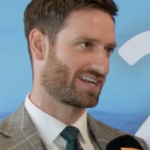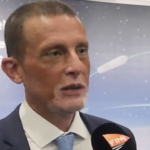The pressing issue of sustainability for the aviation industry was the hot topic at the Airline Leaders Summit at the 2022 Farnborough International Airshow last month.
The event saw captains of industry gather to discuss the key challenges facing the sector as it emerges from the Covid slowdown. And the issue of the environment was front and centre.
“We have to acknowledge that while our contribution to man made CO2 is low today, as other industries decarbonise, the contribution from aviation will increase and that really is the challenge,” said Willie Walsh, director general of the International Air Transport Association (IATA).
“We know that decarbonising the airline aviation industry is going to be difficult, but we have committed to net zero by 2050.”
Pratt & Whitney innovation
Graham Webb, the chief sustainability officer at Pratt & Whitney, explained how the company was helping its customers reach this goal.
“We’ve been innovating over the decades, reducing continuously the emissions, the fuel burn of the engines, and we’ve recently done that with respect to the geared turbofan engine where we are enabling a 16 per cent reduction, by the introduction of a gear that enables the turbo machinery to operate at optimum efficiency,” he said.
“And we just announced recently the GTF Advantage which has delivered another 1 per cent [saving]. And overall, we’ve saved 800 million gallons of fuel and over 800,000 tonnes of CO2 from our customers as a result of these innovations.”
The Emirates view on summer disruption
Sir Tim Clark, president of Emirates Airlines, was also present at the summit. Commenting on the post-pandemic recovery of the sector, and the disruption experienced by many travellers this summer, he said: “I’ve been in this business a long time and I’ve seen so many interventions and interdictions both regionally and globally.
“I’ve kind of hardened myself to the inevitability that global demand for air travel bounces back. The resilience of demand is always there.
“So whether it be 9/11, whether it be the financial crisis 2008/09, we saw a bounce back, I saw no reason why even with a pandemic being the worst of all of these, why the same logic wouldn’t apply to demand post its conclusion.
“If you suppress demand … it will come back at you. And for me this was absolutely obvious, why others didn’t share that view, I have no idea, but we … prepared ourselves for it, both in terms of fleet, crewing, and even though we carried surplus capacity in terms of the human resource to meet that when they were called up, they were ready. And that’s what I thought everybody else would be doing but clearly they weren’t.”

